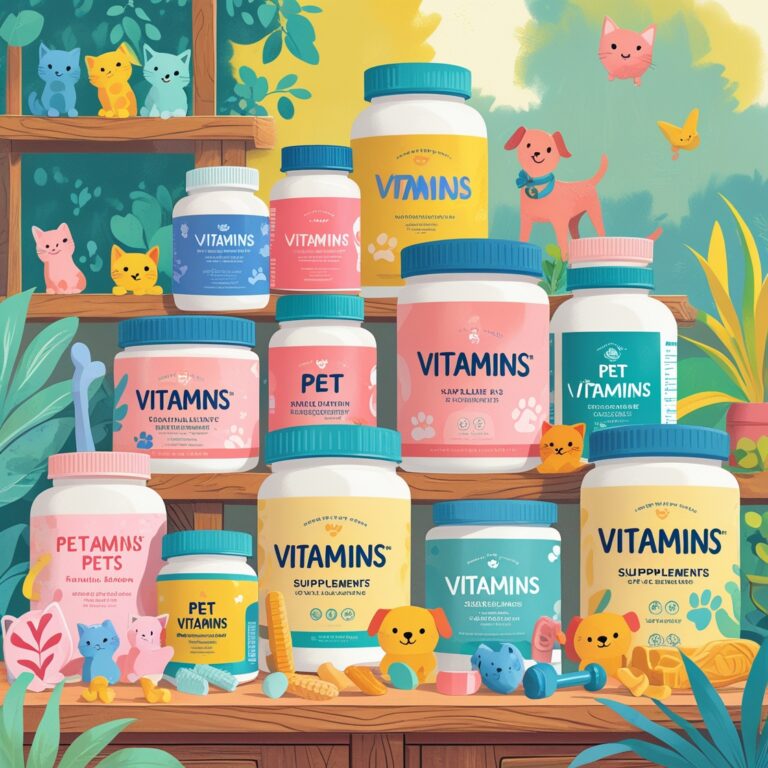Just like humans, our furry companions need proper nutrition to live long, healthy lives. While high-quality pet food provides the foundation, pet vitamins play a critical role in supporting your dog or cat’s overall well-being.
So, do pets really need vitamin supplements? Or is their regular food enough? Let’s explore the basics of pet vitamins and when they might be essential.
What Are Pet Vitamins?
Vitamins for pets are organic compounds that help regulate essential bodily functions like metabolism, digestion, immunity, and bone development. They’re typically divided into two categories:
- Fat-soluble vitamins (A, D, E, and K): Stored in body fat and used gradually.
- Water-soluble vitamins (B-complex and C): Not stored, so they need to be replenished daily.
Each vitamin serves a unique purpose, and both deficiencies and excesses can affect your pet’s health.
Does My Pet Need a Vitamin Supplement?
Many pets who eat high-quality, veterinarian-approved commercial pet food get most of the nutrients they need. However, there are situations where natural pet supplements or targeted dog vitamins or cat vitamins can make a big difference.
Your pet may benefit from supplements if:
- They’re on a homemade diet that might lack specific nutrients.
- They’re a senior pet with age-related nutritional needs.
- They have chronic health conditions (e.g., joint pain, allergies).
- They’re recovering from surgery or illness.
- They’re picky eaters or have poor appetites.
In these cases, supplements can fill nutritional gaps and help improve quality of life.
The Benefits of Vitamins for Dogs and Cats
Here’s how adding the best vitamins for pets can support your pet’s health:
🐕 1. Immune Support
Vitamins like C and E act as antioxidants, helping protect your pet from illness and inflammation.
🦴 2. Joint and Bone Health
Vitamin D promotes calcium absorption and stronger bones. Many dog joint supplements also include Vitamin C and E for anti-inflammatory support.
😺 3. Skin and Coat Health
Vitamin A, Biotin, and Omega-3 fatty acids are commonly found in cat vitamins and dog skin supplements for shiny coats and healthy skin.
🐾 4. Growth and Development
Puppies, kittens, and pregnant pets benefit from B-complex vitamins and Vitamin A to support proper development.
🧠 5. Brain and Eye Function
B vitamins aid energy levels and brain health, while Vitamin A supports vision and neurological function.
Can Too Many Vitamins Be Harmful?
Yes — giving your pet excessive supplements can be dangerous. Overdosing on fat-soluble vitamins (like A or D) can lead to toxic buildup and serious health issues, including:
- Joint stiffness or bone pain
- Kidney damage
- Digestive upset or fatigue
That’s why it’s vital to choose only vet-recommended pet vitamins and always follow dosage guidelines.
Choosing the Right Pet Vitamins
When shopping for pet supplements, look for products that are:
- Made specifically for pets (not human supplements!)
- Approved or recommended by veterinarians
- Free from artificial fillers and dyes
- Formulated for your pet’s age, breed, and health condition
If you’re not sure where to start, talk to your vet. They can recommend the best vitamins for dogs or top-rated cat supplements tailored to your pet’s needs.
Final Thoughts
Vitamins for pets aren’t just an optional extra — they can be a powerful tool to support your pet’s health, especially during times of stress, aging, or illness. While a balanced diet is key, a well-chosen supplement can provide peace of mind and a boost to your pet’s wellness.
Thinking about trying a new natural pet supplement? Always consult with your veterinarian first to ensure your pet gets the right balance — and nothing they don’t need.
A healthier pet starts with smarter choices. You’re on the right path!


